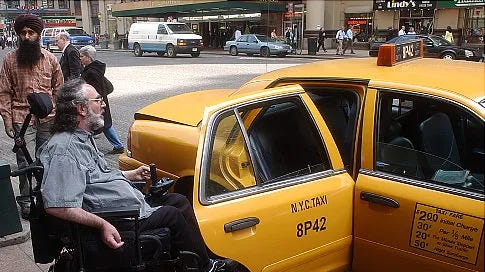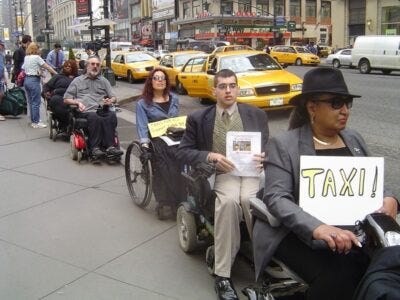I had a good conversation with a friend, recently. They’re someone who does a lot to take care of people. They’re good at listening and drawing boundaries—at least it seems that way to me—and they’re able to share criticism while holding space for empathy. To summarize, my fingers on the keyboard turn towards two phrases, contradictory: “a true anarchist” and “such a rare combination of skills in our movement and in society at large.”
For a long time this friend has worked in reproductive health and abortion care. They’re also a parent, and they’ve also had an abortion. As a consequence of the former, they’ve faced harassment and death threats, as have most people who work at abortion and reproductive care clinics in the US.
We were talking about an essay I wrote last August that just got published in Belt Magazine, “Turtle Lake.” The essay is about genocide and the ecological crisis, child abuse and parenting, birth and hope and suicide, baby turtles and baby wood ducks. It’s also about a missed miscarriage Raechel had (which she writes about in “Poppygoblin” in Gordon Square Review). To treat a missed miscarriage, you need the exact same procedure as an abortion, and in our own ways she and I each wrote about how people who get the same procedure are treated in opposite ways, and about how people who get the procedure for vastly different reasons are treated the same.
When writing about it a year and a half later, I agglomerated a mountain of difficult, painful things: the scarcity of care that the severely understaffed and underfunded clinic was able to provide; Raechel’s anxiety and suffering throughout a procedure that’s targeted by politicians and far Right protesters; my experience of waiting in the car while she was getting treated, not allowed to hold her hand through it all; my disembodying experience of being cut open, poisoned, and bombarded with radiation for a couple years by doctors trying to kill a brain tumor that’s become a part of me; the mercenary apathy of insurance companies and the patriarchal apathy of many doctors as R deals with spiraling pain from a chronic condition that the medical establishment knows little and cares even less about… in the essay I wrote, I needed to talk about the cruelty that can still exist on the other side of good intentions, and deep within the institutions we rely on to save our lives.
C, the friend, was pushing back on my choice to include the clinic workers in this description of cruelty. These workers are paid far less than anyone else with medical training, they face far more stress and violence, and they do it to take care of people who are making a potentially heartbreaking choice in a society that doesn’t want to give them any choice at all.
And, C wanted me to know that their own abortion was a positive experience, a liberating choice, with an easy recovery. Some people can have a difficult experience, but it’s important to also tell the stories that cut through the curtain of fear a patriarchal society puts up to discourage abortions. Plenty of abortions are easy, and being forced to carry a pregnancy, being robbed of the choice, is often traumatizing.
My friend wanted me to listen, but they could see the other experiences I was trying to evoke, and hear out the reasons for the choice I made. Like I said, it was a good conversation: meaningful, complex, heartfelt.
The next day I contacted the magazine, and they let me change the paragraph in question, to make sure no one would take it as a call for judgment over empathy. (If you know anyone who read the original version and felt upset by that paragraph, tell them I’m sorry and I think it’s better now.)
It was actually empathy that drove me to use the framework of cruelty: I think all of us can be forced to be complicit in cruel systems, and I think that’s really important to discuss. To make sure I’m not throwing anyone else under the bus, I going to share something now about my own cruelty.
For a few years, back when I still lived in Virginia, I was a taxi driver. Taxi drivers have very little in common with abortion providers. One small interstice, though, can be found here: especially in poor and rural parts of this wretched country, there is no functional public transportation. (A century ago there was actually an incredibly thorough train network, but the government dismantled it to help out that fascist, Henry Ford.)
What this means is that in Rockingham County many poor people used Medicaid or Medicare vouchers to get to dialysis centers, to chemo, to dangerous or painful operations. And in a few exceptional cases in Virginia, to abortions.
Western medicine, historically and structurally, is designed to be dehumanizing. Many patients, advocates, nurses and even doctors today are pushing back against that, but it is still, overwhelmingly, a disembodying, pacifying, and silencing experience. It’s hard to connect with your emotions in a hospital or a clinic, and it can take years to unearth the feelings we bury down after a traumatic medical process. But there are still feelings that erupt in the moment. It’s on the drive there that people connect with their dread. And it’s on the drive back—if they’re not too dosed up—that some people start to connect with their humiliation, their anguish, their loss.
So, nowadays, there aren’t any more taxis, ever since the whole society decided to be scabs and willingly participate in their own surveillance and support companies like Uber.1 American taxi drivers also share some responsibility, as they decided not to take a lesson from their counterparts in other countries, where drivers went on strike, blocked traffic, and paralyzed whole cities to force Uber and company to pay similar licensing fees, which basically destroys their parasitical business model. I don’t know who takes Medicaid patients to the hospital in places like Rockingham County these days. (In Cleveland it’s a special bus, it often comes an hour late and sometimes not at all, so I never took it.) I don’t know who does it and I don’t know what they think about it.
But I can speak bluntly about what taxi drivers thought about voucher rides, back when we still existed. We hated them.
The vouchers paid a much lower rate than the standard fare, we’d have to wait a long time to get it, and it wouldn’t come with all the other benefits of cash (which is also dying out, thanks to how much people love being surveilled and dependent on noxious apparatuses). Taxi drivers are (were) in a class with no labor rights. We’d pay the company owner for 12-hour leases on the cars as though we were independent operators, a blatant evasion of any employer responsibilities. If we weren’t getting good calls on a shift, we might work 12 hours and have to pay the boss for the privilege. A single good fare could make the difference between a cash-rich day and going home poorer. Being the first one to hit the PTT and radio in your car number when the dispatcher put out a call meant you got the fare. Hearing the dispatcher respond with your car number, meaning you’d won the bid, filled you with warmth. Finding out it was a voucher was so frustrating because it meant a slow, arduous job, low pay, and a long time before you’d be back in line for another customer.
A lot of poor people getting medical care have limited mobility, wheelchairs being just one example. Our cabs weren’t equipped for wheelchairs, and the wheelchairs available to poor people tend to be heavy and difficult to fold up. It was backbreaking labor getting them into and out of the trunk. We didn’t have anything to give people with nausea, and the back of the cab was difficult to clean if anyone had an accident. All of that was work we weren’t paid for.
Does it feel grotesque that I’m talking about these things? It should. I hope some of you are even feeling disgusted with me right now. Our first response should be empathy with people who are facing life-threatening conditions like diabetes or terminal illnesses like cancer. It should be outrage with a mercenary society that makes people deal with discomfort and humiliation when they just want to get home after something as awful as chemo injections. What kind of society takes someone who is probably feeling severe nausea, someone facing a life-threatening illness, and requires them to sit in the back of a speeding car? It should be sympathy—sadness alongside admiration—for people who are subjected to poverty and on top of it have to deal with reduced mobility, like needing wheelchairs, when the entire social architecture is designed to exclude them.
A taxi driver cannot fix any of those things. On the contrary, they’re incentivized to get the whole thing over as quickly as possible. A twelve hour shift with no guarantee of actually getting paid and plenty of motives for hustling, for preferring a fare that pays in cash, for worrying about getting a back injury if you had to deal with a wheelchair, when most of us didn’t have any kind of health insurance (and a chronic health problem I had developed in prison got way worse, way more painful, in those years I spent driving my run down cab).
Some drivers would treat the voucher rides with outright hostility. Others would adopt a “grin and bear it” attitude, which the people being taken to and from the clinic certainly picked up on, another sign that the dominant society considered them burdensome for being sick and poor. A few drivers made an effort to be kind with those folks, to drive gently, to wish them well, to help them feel respected and dignified in situations where all the institutions they were dependent on did the exact opposite.
But none of us could fix it.
It would be dishonest to ignore how I became part of the cruelty. I’d be selective if I erased the times I cursed when wrestling a seventy-pound wheelchair into a small trunk at a hard angle. I’d be naïve if I assumed my passengers didn’t feel the resentment when our uncertain wages were pitted against their health, their dignity, their care.
I didn’t come here to make a spectacle of guilt. I’m writing about this because our society thrives on getting us to reproduce cruelty. We don’t write the rules of private property and skinny wages, but we play the game. And the game, by its nature, is unequal, both in terms of consequences and responsibility.
For instance, I don’t think there’s redemption for the wealthy, at least, not while they remain wealthy, nor forgiveness for police, at least, not without them spending long years contemplating the horrible depths of torture and captivity and giving themselves up to the legitimacy of anyone’s vengeance. I don’t believe all forms of complicity are the same. But I do think complicity is nearly universal.
I think that sometimes those who are quick to forgive and empathize need to make space specifically not to forgive, to say out loud that none of this is acceptable, even if all the roads lead us here. And I think those of us who allow ourselves to get righteous and angry, to throw stones, need to explore the cruelty that we reproduce, and dwell on that a while…
Eventually we should get back to expecting all of us to do better, without believing in perfection. But a necessary part of renouncing perfection and embracing empathy is to feel rage at injustice and also sit with our own complicity.
We can’t transform a world of cruelty into a world of care without understanding everyone’s capacity for cruelty, and still caring about what happens to us.
This inaccurate generalization speaks to my provincial perspective. It turns out that traditional taxi companies like Yellow Cab still hang on in several major American cities, though, for example, Yellow Cab in NYC and San Francisco declared bankruptcy in 2015 and 2016, respectively, and others, like in Pittsburgh, adopted a business model more similar to that of Uber. Meanwhile, wheelchair users in several cities fought the cab companies for a guarantee of accessibility and rights, using protest, lobbying, and blockades… and won. So-called ridesharing apps—scab companies like Uber—however, give them fewer or no guarantees. The struggle continues.







As usual Peter you've articulated a fundamental aspect of any coercive state in a way that speaks specifically (and empathetically) to how the US people suffer in 2025. Thank you for your work.
This is a great illustration of why I continue to feel more and more politically radical in my fifties than I did before. The complicity that I feel in working within these structures (let's include Substack in this, thought publishing here is a hobby for me, not my work). The more I accept that I am complicit the more I work to undermine my own complicity and how I portray it to others.
Thank you for your writing.